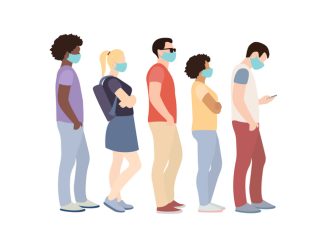
As reported by NHE, the latest NHS England data shows an increase in waiting list numbers, with 308,000 patients waiting over a year for treatment
Of that number, 308,000 were waiting more than 52 weeks; 56,000 were waiting more than 65 weeks; 5,000 were waiting more than 78 weeks; and 259 were waiting more than 104 weeks.
Only 59% of patients waited fewer than 18 weeks — significantly short of the 92% standard.
This comes at the same time as the publication of 2024’s GP Patient Survey, which suggests:
- 74% of patients had a good overall GP practice experience;
- 67% of patients had a good overall experience when contacting their GP practice;
- 56% of patients who contacted their GP practice when it was closed had a good overall experience;
- 69% of patients who tried to get a dental appointment in the two years had a good overall experience; and
- 87% of patients a good experience of pharmacy services.
Approximately 66% of patients felt their appointment waiting time was “about right” according to NHSE. Between initial contact for an appointment and actually getting one, 27% did so on the same day; 22% a few days later; 21% between a week or two later; 12% more than two weeks later; and 10% could not recall.
The Royal College of General Practitioners consistently campaigned in the run-up to the election around excessive workloads and patient safety. This is compounded by fewer overall GPs delivering more appointments — something the RCGP’s chair, Professor Kamila Hawthorne described as “unsustainable”.
“Today’s statistics serve as a stark reminder of the huge mountain to climb,” said the Health Foundation’s assistant director of policy, Tim Gardner, responding to the release.
“The NHS waiting time standards Labour has pledged to meet by the end of this parliament have now been routinely missed for nearly a decade.”
He added: “The latest GP patient survey shows that while patients’ overall experience of general practice remains positive, too many people are struggling to get through to their practice.
“The government’s recent announcement of renewed focus on NHS performance is welcome, but as these data show there is no time for delaying the urgent action that is needed.”
Also responding to the latest data, The King’s Fund’s CEO, Sarah Woolnough, commented: “The figures show the next five months, let alone the next five years, will be far from plain sailing.
“The new government will face choices and dilemmas over how quickly it can improve NHS performance when finances remain tight.”
New health secretary Wes Streeting has said the official policy of his department is that the NHS is “broken” and signalled that economic growth is a priority.
With that in mind, he ordered Professor Lord Darzi to carry out a comprehensive review of NHS performance today.
A&E performance statistics showed today that 74.6% of patients were admitted, transferred or discharged from A&E departments within four hours in June, which is a slight increased from the 74% flat observed in May.
There were 2.29 million total attendances in June — this represents a 3.1% increase compared to the same time last year, when comparing the daily average attendances. Emergency admissions totalled 536,884, which is also an increase compared to June 2023 — 2.7%.
Recent polling suggested that over nine in 10 A&E chiefs believed that department conditions were leading to a quality of care that was endangering patients.
The NHS Confederation’s CEO, Matthew Taylor, said: “The rising waiting lists and surging demand these new figures show can only reinforce the new Health and Social Care Secretary’s assertion that the NHS is broken.
“Staff are working flat out to deliver for their patients, but a decade of underinvestment coupled with the pandemic, some very difficult winters and more than a year of industrial action have taken their toll on NHS performance, staff morale and patient satisfaction.”
NHS leaders have said that this is going to be no quick or easy fix and will instead be a long-term project if performance is going to rise so much that it meets targets — some of which have not been met in nearly a decade.



Be the first to comment